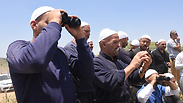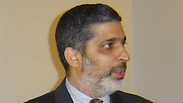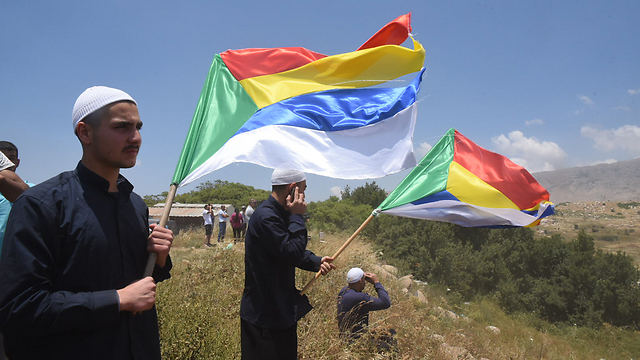

The weakening of Syrian President Bashar Assad's army has left the Druze populations in southern Syria surrounded by hostile elements: From the north, Shiite forces of Hezbollah; from the south, Sunni jihadist rebels; and from the eastern desert, the black flags of the Islamic State are moving closer.
The only front which does not reflect any danger is the western one – the Israeli border. When the attacks on the Druze increase, Israel will be required to make a decision – either to take action or to watch from aside a bloodbath like the one the Yazidis suffered in the hands of ISIS.
The Druze are an ancient religious social community, which considers the biblical Jethro, Moses' father-in-law, as its ancestor. They believe in one god, and like the Jews, they do not seek to convert or persecute those who are different from them.

In as early as the 12th century, Benjamin of Tudela described the Druze as "mountain dwellers, who believe in one god and in reincarnation" and "love the Jews." In the eyes of Sunni and Shiite Islam, on the other hand, the Druze are heretics who should be converted or annihilated.
The Druze were often persecuted and mainly settled in mountainous areas allowing fortification and self-defense – in northern Israel, in southern Lebanon, and mostly in an area in southern Syria known as "the Mountain of the Druze."
During many periods the Druze maintained an autonomy, and in the 1920s and 1930s there was even a "Druze state" under a French mandate, which was later annexed to Syria. In Syria the Druze became part of an alliance of minorities, through which the Assad family ruled the country.
But on the fifth year of a brutal civil war, and despite getting help from Iran and Hezbollah, the Assad regime is crumbling and losing hold of southern Syria. So far, the Druze have pledged allegiance to the Assad regime, but have avoided taking an active part in the war.
The rebel regime doesn’t seem promising either, in light of the precedent of several Druze villages in northern Syria, which have been under the pressure of forced religious conversions and assassinations since being occupied by the jihadists.
The Druze are not waiting idly. They are getting organized and arming themselves for self-defense, and the community members in Lebanon and Israel have stated – and rightfully so – that if their brothers face an existential danger, they will fight by their side.
In all their countries of residence, the Druze stand out with a strong community life alongside clear loyalty to the state, but with the practical death of the Syrian state they are facing a tough decision: Should they stick to their loyalty to the crumbling Assad regime, which is incapable of defending them? Should they team up with jihadist rebels, who will establish an Islamic state in Syria that will define the Druze as heretics? Should they follow in the footsteps of the Kurds who have created independent "cantons" in northern Syria, ahead of a possible separate state? Every alternative involves huge dangers, and the moment of truth is getting closer.
Every alternative will deeply affect Israel, and there will be no escape soon from addressing the boiling saucepan on our border. Will the territory opposite the Golan be controlled by Hezbollah-Iran forces? By the jihadists of ISIS? Or by an independent Druze region?
The Israeli interest is clear, but so far we have settled for preparing to set up a hospital and a tent encampment in case tens of thousands of refugees arrive from Syria. We had better ask ourselves and our allies in the West what can and should be done as the moment of truth draws near.
Dr. Ofir Haivry is vice president for academic affairs of the Herzl Institute.
















